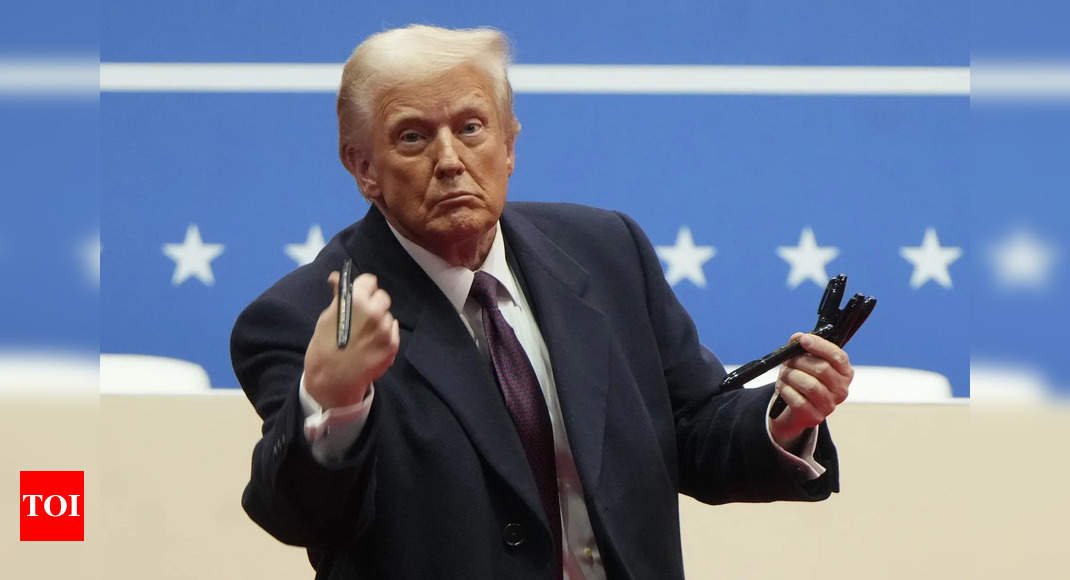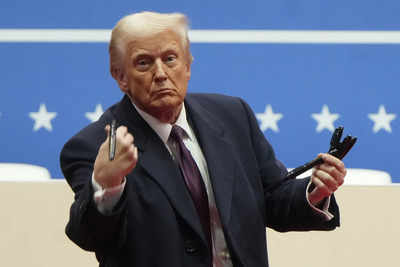The Trump administration’s aggressive rollback of Diversity, Equity, and Inclusion (DEI) programs has ignited a legal and ideological battle over the future of academic freedom in the United States. In a sweeping move to reshape higher education, the administration has issued executive orders dismantling federal support for DEI initiatives, prompting universities, scholars, and civil rights groups to push back through the courts.
A lawsuit filed in the US District Court in Maryland by leading academic organizations challenges what it calls an unconstitutional overreach of executive power. The plaintiffs—led by the American Association of University Professors (AAUP) and the National Association of Diversity Officers in Higher Education (NADOHE)—argue that the orders violate fundamental rights, disrupt institutional policies, and imperil decades of progress in fostering inclusive learning environments.
“This is about more than just funding. It’s about the government dictating what universities can and cannot prioritize,” Todd Wolfson, president of the AAUP, told The Guardian. “DEI is not a political experiment—it is an essential framework for ensuring higher education remains accessible and representative of all communities,” he added.
Federal Crackdown on DEI: A Systematic Dismantling
The Trump administration’s latest orders, signed on January 23, 2025, restrict the flow of federal funds to any institution maintaining DEI-based programs, scholarships, or research initiatives. Universities that fail to comply with the new guidelines risk losing federal grants, a financial lifeline for many public and private institutions.
The impact has been immediate. Colleges that once relied on federal support for diversity programs are now scrambling to rebrand or eliminate their DEI offices. Some institutions, fearing political or financial repercussions, have begun rolling back mentorship programs, canceling diversity training, and dissolving student organizations designed to support underrepresented communities.
Missouri State University, for instance, shuttered its Office of Inclusive Engagement within days of the new executive orders. West Point, the U.S. Military Academy, dissolved 12 cadet clubs centered on ethnicity, gender, and sexuality, according to a report from The Washington Post. Meanwhile, Rutgers University abruptly canceled a program supporting students from historically Black colleges, reported The New York Times.
The abrupt policy shift has left international students—particularly those from India, China, and Latin America—in a precarious position. With fewer institutional support systems in place, many now face heightened uncertainty over their academic and professional futures in the United States.
A Constitutional Battle Over University Independence
The lawsuit argues that Trump’s directives infringe on the First and Fifth Amendments, undermining both academic freedom and institutional autonomy. It also challenges the legality of the executive branch dictating funding allocations, a power historically reserved for Congress.
“In the United States, there is no king,” the lawsuit states, as quoted by The Guardian. “The President can exercise only those powers the Constitution grants, and only in ways that do not violate the rights of the American people.”
The case underscores a broader legal debate over the extent of presidential power in shaping higher education policies. Legal scholars warn that if the orders stand, they could set a precedent allowing future administrations to dictate curriculum choices, faculty hiring policies, and research priorities.
Paulette Granberry Russell, president and CEO of NADOHE, told The Washington Post that the lawsuit is a defining moment for academic governance. “This isn’t just about DEI,” she said. “It’s about whether universities have the right to make independent decisions about how they educate and support their students.”
The Ripple Effect: Research and Public Health at Risk
Beyond academia, experts warn that Trump’s anti-DEI stance threatens vital research initiatives, particularly in fields like public health, medicine, and social sciences.
“The freezing of federal funding is already disrupting major research projects,” Wolfson told The Guardian, citing studies on cancer, diabetes, Alzheimer’s, and heart disease that have been stalled due to financial uncertainty. “Millions of Americans depend on this research. Cutting it off isn’t just an attack on education—it’s an attack on public well-being.”
University officials also fear that scholarships and grants designed to support students from marginalized backgrounds will be scaled back or eliminated entirely, making higher education less accessible for low-income and international students, according to The New York Times.
A Defining Moment for Higher Education
The lawsuit, spearheaded by Democracy Forward, a legal advocacy group known for challenging federal overreach, is expected to be one of the most consequential legal battles over education policy in recent history.
With universities, advocacy groups, and legal experts mobilizing against the administration’s directives, the case could determine the long-term role of DEI initiatives in American academia.
“We will fight this at every level—legally, politically, and through grassroots advocacy,” Wolfson told The Guardian.
As the battle unfolds, higher education finds itself at a crossroads. The outcome will not only shape the future of DEI programs but also define the limits of executive power over academic institutions.




